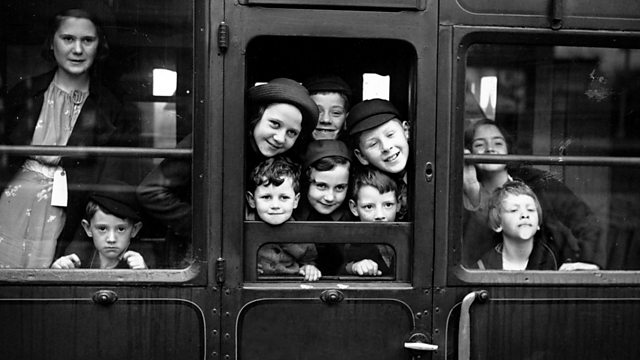In the first four days of September 1939, almost 3 million people were moved from the cities to the rural countryside, in fear of bomb raids. A majority of the evacuees were schoolchildren, who were separated from their families and homes and brought through a traumatic experience of separation.
 Given predictions of 4 million civilian casualties in London, parents hurriedly wanted their children to be evacuated and sent to the safety of the countryside, but the kids did not have a say in the matter and often had no idea where they were headed or why.
Given predictions of 4 million civilian casualties in London, parents hurriedly wanted their children to be evacuated and sent to the safety of the countryside, but the kids did not have a say in the matter and often had no idea where they were headed or why.
Even 60 years after, people who experienced the evacuation still recall what it was like and how it made them feel. The government propaganda caused mass hysteria because it vastly overestimated the casualties and portrayed death. And though planned efficiently, the actual execution of the operation was arguably more traumatic than the evacuation.
Because they were being taken to the countryside, children often arrived in places that were already full or were no longer offering their homes to children anymore. In addition, many children arrived in the wrong locations, furthering the issue of insufficient housing arrangements.
One of the most famous lines still remembered today is “I’ll take that one.” In places where the number of children outnumbered the available homes, they would have the homeowners come and pick which kids they would allow to stay in their homes. This caused great trauma for the kids that weren’t picked, as they felt like they would not have anywhere to stay or were not liked by anyone.
 But not all experiences were bad, there are tales of children who stayed in the homes of families who welcomed them as one of their own or wealthy families who had servants that cared for them. While people who lived like this remember their time fondly, there are still countless others who lived in families who did not care for them or actually abused them, who will remember that forever as a scarring experience.
But not all experiences were bad, there are tales of children who stayed in the homes of families who welcomed them as one of their own or wealthy families who had servants that cared for them. While people who lived like this remember their time fondly, there are still countless others who lived in families who did not care for them or actually abused them, who will remember that forever as a scarring experience.
Great post! It was nice to read more stories about the civilian life during the war. From the source you provided (bbc), I thought a sad story of this event was of a boy who "was horsewhipped for speaking out" and another who had his rations "stolen by his host family." Operation Pied Piper seems to be another example of civilians getting caught up in the war.
ReplyDeleteI liked how you gave a different story usually not heard about the war's impact. I also liked how you mentioned both sides of some happy and some traumatic experiences. Overall great article!
ReplyDelete